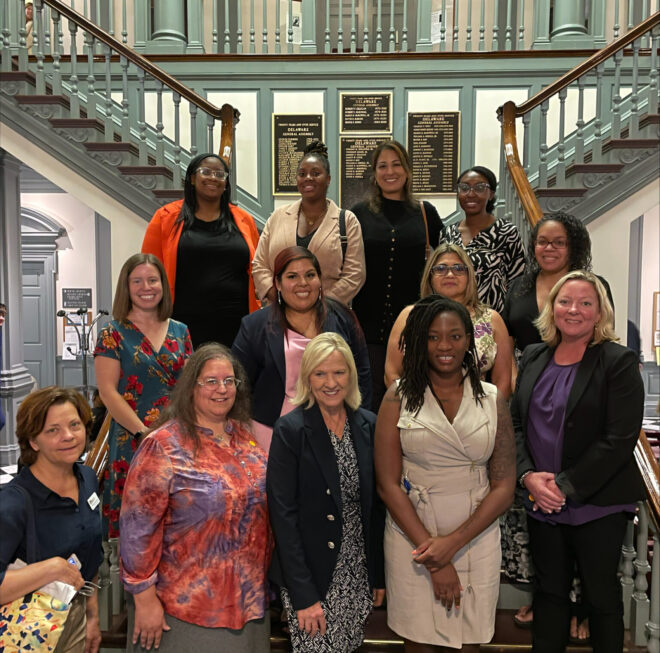The CHW Association of Delaware provided multiple trainings to help me become a better CHW by explaining how to engage with clients in the community.
Lisbeth Rojas
Quality Insights

Stakeholders in Delaware have been discussing the value of training and voluntary certification of CHWs for several years. There is great value in promoting voluntary certification of CHWs. Voluntary certification would not only define scope and standards for CHWs in Delaware but would also ensure CHW focus on non-clinical social determinants of health; and can provide specific modules, such as trauma informed care, or opioid awareness and prevention to advance population health as part of the curriculum or recertification requirements. We believe that without such standardization, the likelihood of CHWs reaching their full potential in the Delaware health care continuum is greatly diminished.
Acknowledgements: The Division of Public Health, Health Management Associates, and other key stakeholders have been working for many years to identify the path forward for Community Health Workers in Delaware. These stakeholders and partners have worked in coalition with the community facilitating workgroups, researching, conducting interviews, and generating reports and recommendations. The above information is derived from these reports, recommendations, and decision memos.
Sustainable funding is another important piece of the puzzle. Currently, CHW programs are largely funded through time-limited, grant funding. Establishing Medicaid reimbursement for CHW services, partnering with Medicare and private insurers, and using state and county funds are some sustainability strategies.
The National Association of Community Health Workers has developed key policy recommendations to respect, protect, and partner with CHWs: NACHW Policy Recommendations
The CHW Association of Delaware provided multiple trainings to help me become a better CHW by explaining how to engage with clients in the community.
Lisbeth Rojas
Quality Insights